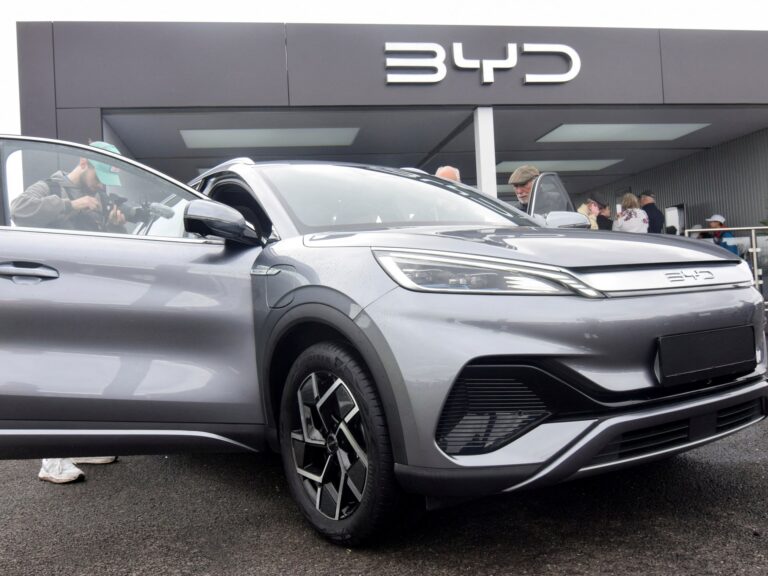China’s Ministry of Commerce pledged to take “all necessary measures” to protect the interests of Chinese companies.
The European Union (EU) has decided to significantly increase tariffs on Chinese-made electric vehicles, sparking a backlash from the Chinese government.
The tariffs of up to 45.3% will take effect on Wednesday after an investigation found that the Chinese government was oppressing European automakers with unfair state subsidies.
China’s Ministry of Commerce said Wednesday that it neither agreed nor accepted the tariffs.
“We also noted that the EU side has expressed its intention to continue negotiations with China regarding price commitments,” the ministry said in a statement, adding that the Chinese government “will take all necessary steps to firmly protect the legitimate rights and interests of Chinese companies.” He added that he would take action.
The Chinese government, which accused Brussels of “unfair” and “unwarranted” protectionism during the investigation, launched its own probe into imports of European products, including dairy and pork products.
The European Commission, which is responsible for trade policy in the region, announced the tariff hikes on Tuesday after talks between Brussels and China failed to reach a compromise in a long-running dispute over electric vehicle (EV) sales.
Under revised trade rules, the EU will impose tariffs ranging from 7.8% on Tesla to 17% on Shenzhen-based BYD and 35.3% on Shanghai-based SAIC, in addition to the standard 10% tariff on imported cars. will be imposed.
The commission argued that state subsidies enable Chinese automakers to set prices unfairly for their European rivals.
Approximately 19.5% of EVs sold in the region last year were made in China, and the policy group Transportation and Environment predicts that Chinese automakers’ market share will exceed one-quarter in 2024.
EU Trade Representative Valdis Dombrovskis said on Tuesday that the tariffs were an example of the EU “defending fair market practices and Europe’s industrial base.”
“We welcome competition, including in the field of electric vehicles, but competition must be underpinned by fairness and a level playing field,” Dombrovskis said.
However, the tariffs are controversial within the EU, with Germany and Hungary raising concerns that the measures could lead to a harmful trade war between the two countries.

